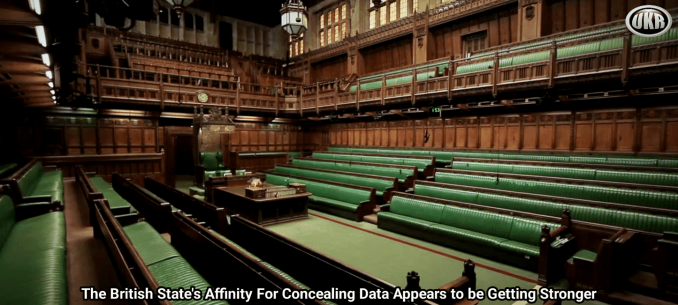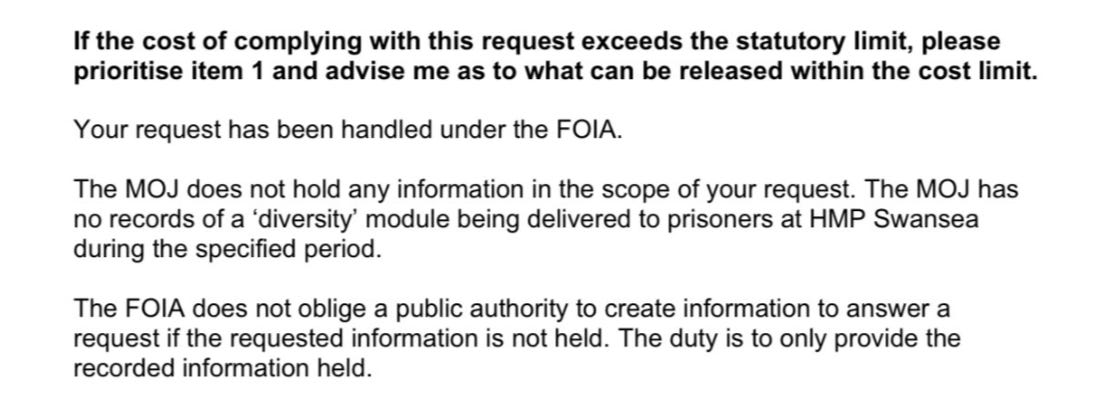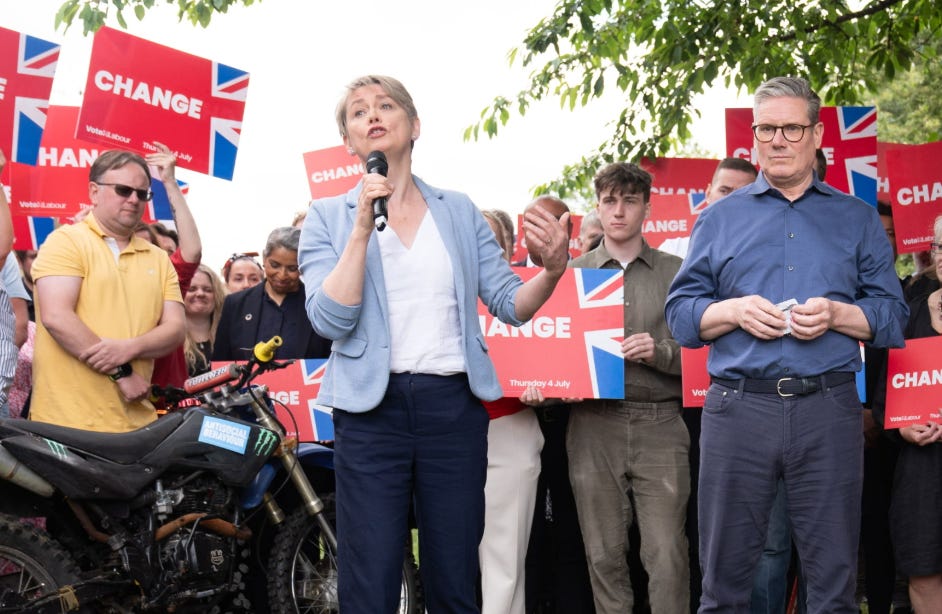
And some would say the excuses are only getting more bizarre and vague.
JJ STARKY
Government departments are now taking the unprecedented step of removing trustee’s names from its public register, if a “potential threat” could arise from disclosing those names.
This is exactly what the Charity Commission, a non-ministerial government department, did after journalist Lewis Brackpool obtained the names of charities the Home Office had worked with to shape asylum policy.

The Commission’s public register has long been a pillar of transparency. It allows us to see who runs a charity—reasonable enough, given the tax exemptions and political influence many now hold.
As commentator Adam Wren noted this week:
“No one is forcing anyone to become a charity trustee. If individuals aren’t prepared for the public scrutiny that comes with running tax-exempt organisations that lobby government on contentious issues like asylum policy, they shouldn’t take the role.”
When The Guardian reported on Brackpool’s FOI, it chose a different angle:
“The Home Office gave a far-right influencer the names of some organisations with which it had had meetings about asylum accommodation, following a freedom of information request.”
For reference, Brackpool is an avid supporter of freedom of speech.
Strip away the partisan labels, in any case, and the story is simple: a journalist made a lawful request under the FOI Act. A department complied. Public reaction made the Commission panic. Now transparency is apparently optional.
So if information might provoke a backlash, it gets censored.
As readers of The Brief will know, this isn’t the only time vague reasoning has been used to withhold data:
The Stark Naked Brief
Every Potential Scandalous Dataset the British Government and Its Departments Have Suppressed
Transparency is the backbone of democracy. It’s how we make sure our politicians aren’t burying their snouts in the trough of public cash or plotting some ridiculous Bond villain takeover of the world. More likely, it keeps them from sweeping their shady, probably illegal screw-ups under the rug, hoping we’re too distracted to notice…
a year ago · 87 likes · 8 comments · JJ Starky
Just days ago, I received a response from Shabana Mahmood’s Ministry of Justice (MoJ) concerning the “diversity” education modules taught to certain “political prisoners” at HMP Swansea.

The request sought copies of the modules, specifically those involving inmates convicted of public order and speech offences, following the fast-tracked prosecutions of non-violent Southport protestors.
On 18 November 2024, the BBC claimed that some protestors were effectively being re-educated behind bars.
One example they cited was Afghanistan and Iraq veteran Daffron Williams, jailed after pleading guilty to “stirring up racial hatred” under Section 19 of the Public Order Act.
His worst posts included the comments: “Civil war is here. The only thing that’s missing is bullets. That’s the next step.” “I am racist as f***, only to those who sap the life out of society and disrespect culture”, added another.
Judge Tracy Lloyd-Clarke handed him a 30-month prison sentence.
Yet when asked for the materials used to re-educate Williams, Mahmood’s department claimed it held no records. They could not fulfil the request.

It raised a rather obvious question. Did the BBC manufacture reports from court hearings mentioning these modules—or is the MoJ failing to keep very, very basic records?
Curiously, neither the MoJ nor the Prison Service initially acknowledged receipt of the request. They also missed the statutory 20-day FOI deadline by almost double.
Some of our police forces have been in on it too.
Back in June, I FOI’d Kent Police over the number of arrests they’ve made under sections 179 and 181 of the Online Safety Act (2023). The request was simple. It concerned two specific offences over a specific period.
Yet, Kent Police refused to disclose the data, not once, but twice—alleging that it was essentially too difficult to retrieve and would likely exceed statutory cost and time limits.
The strange thing is, other forces, including Essex, Leicestershire, Merseyside, West Mercia, West Midlands, had absolutely no issue providing this exact data over the past few months.
In fact, Kent are the only force to have made an issue out of it.

It marked a bizarre exception—one that’s hard to interpret as anything other than laziness or gross incompetence.
It also suggests they can’t easily access basic data for their own records or investigations, which isn’t exactly reassuring for Kent’s estimated 1.6 million residents.
Then there was Brackpool’s FOI to the Met Office last year.
In May 2024, he submitted requests to seven government departments about geo-engineering research. The Met Office revealed it had studied techniques for reflecting the Sun’s energy back into space, but only in computer simulations.
But in the same response, they refused to release some material because it was still “in the course of completion.”

Their legal team further argued that releasing “incomplete data” could mislead the public, interrupt their scientists’ work, and “undermine the process of input and analysis.”
In theory, that excuse could apply forever. If a project is never officially “complete,” the data never has to be released.
Which brings us to the man ultimately in charge of our FOI operation: John Edwards, the UK’s Information Commissioner since December 2022. He also served as New Zealand Privacy Commissioner from 2014 to 2021.

He oversees how public bodies follow the Freedom of Information Act 2000.
For instance, if a department refuses, delays, or botches a request, you can first ask it to review its own decision. If that fails, you can escalate to the Information Commissioner’s Office (ICO). Edwards then investigates, rules, and enforces.
As past judgements have proved, however, Edwards does not always favour the side of transparency.
In October 2024, Edwards backed the Home Office when it blocked FOIs about the cost of furnishing asylum flats.
Yvette Cooper’s department claimed the data could harm asylum seekers’ “health and safety”, even though the FOIs didn’t ask for addresses, and many locations were already public.

Edwards let them block it anyway.
Why? Because a few violent individuals at Southport protests, the Home Office claimed, made it too risky. Edwards accepted that logic, despite the possibility of violence being pure speculation.
In effect, he allowed a department to hide how it spends public money, on the grounds that the public might get angry if they found out..
This is the man acting as judge and jury over England and Wales’ entire FOI system.
Put simply: government departments—many already eager to block requests—are using increasingly vague, subjective excuses to withhold information. And those excuses are being signed off by a foreign appointee who seems happy to play along.
In fact, having skimmed over the FOI Act 2000, it seems it is plagued by the same vague and subjective legal prose that much of our speech laws are. So the root problem may not be partisan officials but legislation—once again.
- Do you believe our best days lie ahead?
- Will you keep watching as our politicians and broadcasters push for yet more surveillance, censorship, and control?
- If you want to push back—if not today, maybe someday—supporting independent journalism can (genuinely) make a real impact.
- In the past year, The Stark Naked Brief reached over 120 million people on X. Sometimes, all it takes is one post—one uncomfortable truth—to wake someone up and put a dent the uniparty’s monopoly.
This article (The British State’s Affinity For Concealing Data Appears to be Getting Stronger) was created and published by The Stark Naked Brief and is republished here under “Fair Use”
Featured image: Wikimedia Commons

••••
The Liberty Beacon Project is now expanding at a near exponential rate, and for this we are grateful and excited! But we must also be practical. For 7 years we have not asked for any donations, and have built this project with our own funds as we grew. We are now experiencing ever increasing growing pains due to the large number of websites and projects we represent. So we have just installed donation buttons on our websites and ask that you consider this when you visit them. Nothing is too small. We thank you for all your support and your considerations … (TLB)
••••
Comment Policy: As a privately owned web site, we reserve the right to remove comments that contain spam, advertising, vulgarity, threats of violence, racism, or personal/abusive attacks on other users. This also applies to trolling, the use of more than one alias, or just intentional mischief. Enforcement of this policy is at the discretion of this websites administrators. Repeat offenders may be blocked or permanently banned without prior warning.
••••
Disclaimer: TLB websites contain copyrighted material the use of which has not always been specifically authorized by the copyright owner. We are making such material available to our readers under the provisions of “fair use” in an effort to advance a better understanding of political, health, economic and social issues. The material on this site is distributed without profit to those who have expressed a prior interest in receiving it for research and educational purposes. If you wish to use copyrighted material for purposes other than “fair use” you must request permission from the copyright owner.
••••
Disclaimer: The information and opinions shared are for informational purposes only including, but not limited to, text, graphics, images and other material are not intended as medical advice or instruction. Nothing mentioned is intended to be a substitute for professional medical advice, diagnosis or treatment.
Disclaimer: The views and opinions expressed in this article are those of the author and do not necessarily reflect the official policy or position of The Liberty Beacon Project.






Leave a Reply